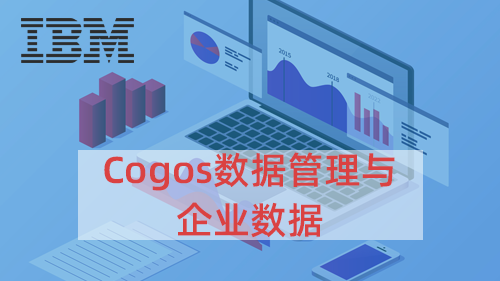
Outline
1、Getting Started
Identify the purpose of Cognos Data Manager
Define data warehousing and its key underlying concepts
Identify how Data Manager creates data warehouses
Examine the Data Manager architecture and user interface
2、Create a Catalog
Examine the purpose and contents of Data Manager catalogs
Create a catalog
Define connections to source and target data
Access data using SQLTerm
Configure flat data source files using SQLTXT
3、Create Hierarchies
Examine the role of the dimensional framework in Data Manager
Examine hierarchies and their data sources
Identify how to create hierarchies from the columns of one table, the rows of one table, and from multiple tables
Test and view hierarchies
Create a hierarchy of static date values
Handle weeks in a date hierarchy
4、Create Basic Builds
Examine Data Manager builds and build-related terminology
Create a dimension build using the Dimension Build wizard
Create a fact build using the Fact Build wizard
Test and execute a fact build
Document a catalog
Create catalog schema
5、Create Derivations
Examine derivations
Apply operators and functions to derivations
Examine the derivation timing model
Add derivations to a fact build
6、Create Conformed Dimensions
Examine conformed dimensions and their advantages
Design conformed dimensions
Create conformed dimensions
Create data integrity lookups that use conformed dimensions
7、Customize Reference Structures
Create hierarchies manually using different approaches
Examine the features of a hierarchy
Examine literals
Set data access for hierarchy levels
Examine static and dynamic members
Examine fostering
Use derivations in a hierarchy
8、Process Dimensional History and Late Arriving Facts
Examine slowly changing dimensions (SCDs)
Use surrogate keys in SCDs
Manage type 1 and type 2 changes to dimensional data
Load historical data for a dimension
Examine late arriving facts
Process late arriving facts in a fact build
9、Transform Data Using Lookups and Derived Dimensions
Identify when to use lookups
Identify the requirements for a lookup
Create a translation lookup
Create an optional lookup
Add derived dimensions to fact builds
10、Customize Data Delivery
Configure fact and dimension delivery modules
Create indexes on fact and dimension tables
Update fact data using keys
11、Customize Fact Data Processing
Filter fact data
Merge duplicate fact data
Examine fact data integrity checking
Reject fact data
12、Aggregate, Filter, and Partition Fact Data
Aggregate fact data
Examine aggregate rules
Vertically restrict fact data
Horizontally restrict fact data
Partition fact data
13、Implement Job Control
Examine where job control fits into the data warehouse lifecycle
Create a JobStream
Add, link, and reposition nodes
Execute a JobStream and view the results
14、Automate Functionality Using Commands
Differentiate between the Command Line Interface (CLI) and Data Manager Designer
Identify common commands
Use commands in a batch file
Examine variables
15、Customize Functionality with User-Defined Functions and Variables
Examine user defined functions (UDFs)
Create an internal UDF
Create a user-defined variable
16、Process Unbalanced Hierarchical Data
Examine balanced, unbalanced, and ragged hierarchies
Add a recursive level to a hierarchy
Identify ways to balance a hierarchy and delivered flattened data
Examine circular references
17、Pivot Fact Data
Examine pivoting
Use the single pivot technique
Use the advanced pivot technique
Examine reverse pivoting
18、Resolve Data Quality Issues
Identify data quality and cleansing issues
Handle fostered and unmatched members
Perform debugging using SQLTerm and functions
Assess the quality of output data
19、Troubleshoot and Tune the Data Manager Environment
Use build logging to ensure that data marts are being loaded properly
Perform dimension breaking
Manage memory and resources
Export DDL statements
20、Organize and Package Data Manager Components
Export and import components using packages
Search for components in a catalog using Navigator
21、Integrate with Cognos BI
Examine Cognos BI
Identify the role of metadata dimensions, metadata collections, and metadata stars
Export Data Manager metadata to XML
Import Data Manager XML into Framework Manager
Use Data Manager metadata with Cognos BI
Publish a data movement task to Cognos Connection
22、End-to-End Workshop
23、Entity-Relationship Model of the GO_Demo Database (Optional)
24、Work in a Multi-Developer Environment (Optional)
Examine collaborative development support
Examine the source code repository
Examine the component dependency model
Identify planning considerations
25、Standardizing Dimensions and Facts Exercise (Optional)
26、Review of Data Manager Essentials (Optional)
Data warehouse design
The purpose of Data Manager components
Development steps in Data Manager to create data marts
Track dimensional changes and late arriving facts